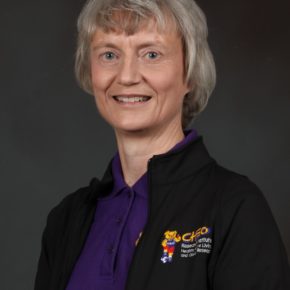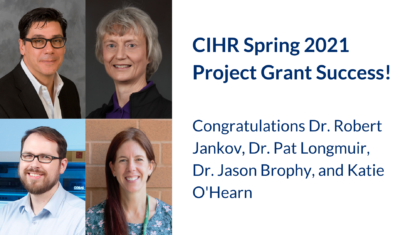Dr. Longmuir is a Senior Scientist in the Healthy Active Living and Obesity Research Group at the Children’s Hospital of Eastern Ontario Research Institute. Dr. Longmuir’s research interests are the promotion of physical activity to children with medical conditions and disabilities, and the use of physical activity to prevent and/or treat morbidity. Her focus is the impact of interventions to increase physical activity. Dr. Longmuir investigates the impact of providing physical activity and exercise within clinical care and avenues to build physical activity motivation and confidence among children with medical conditions and disabilities. Dr. Longmuir has published more than 90 papers and 6 book chapters in the peer-reviewed literature. She has delivered over 200 scholarly conference presentations, and more than 80 invited and keynote addresses.
Related News
Research Projects
-
Quick, effective screening tasks identify children with medical conditions or disabilities needing physical literacy support.
03/01/2024
-
Community Readiness Assessment of the “Take TIME for Your Child’s Health” Intervention
24/08/2023
Children are engaging in less physical activity and worse dietary habits, resulting in an increased risk of detrimental health effects such as childhood obesity, diabetes, hypertension, heart disease, and other conditions. Physical activity declines from age 3, meaning that children are subject to many more years of unhealthy lifestyle behaviors [1]. Interventions are vital to change this trajectory, but communities have different needs and respond variably to interventions. The Community Readiness Model, developed by the Tri-Ethnic Center for Prevention Research at Colorado State University, integrates a community’s culture, resources, and level of readiness to develop stage-appropriate strategies [2]. The model considers six dimensions to classify a community’s preparedness to combat an issue. Interventions matched to community readiness are vital; they are challenging enough to create change without being too ambitious [2]. Studying community readiness is important because of the implications for public health and community intervention planning. Findholt [3] reported the model was effective in gauging community readiness for addressing childhood obesity.
-
Preventing sedentary lifestyles among young children born with congenital heart defects: A feasibility study protocol of physical activity rehabilitation after surgical or catheterization intervention
18/08/2023
This feasibility study will provide essential data for a randomized controlled trial to evaluate play-based, parent-delivered interventions optimized to support age-appropriate physical activity and motor skills among young children with CHD. Preliminary intervention efficacy data will inform an evidence-based sample size calculation, optimize intervention timing, and identify hypotheses on the motor skill—physical activity connection and the impact of play-based, parent-led interventions during recovery from CHD treatment. Long-term, the goal is to optimize motor skill and active lifestyles among young children with CHD, enabling their healthy growth and development and enhancing childhood quality of life.
-
Impacting Children’s Physical and Mental Health through Kinesiology Support in Clinical Care: A Randomized Controlled Trial Protocol
18/08/2023
Our primary hypothesis is that children with medical conditions and disabilities, aged 8 to 18 years, randomized to receive 24 hours of healthy, active lifestyle support will have more confidence that they can participate in physical activity than those who do not receive support. Our secondary hypothesis is that, in comparison to the wait-list control group, those receiving kinesiology support will manifest a healthier lifestyle reflected in closer compliance to the Canadian 24-hour movement guidelines for a healthy lifestyle.
-
Impact of Physical Activity Counselling on Children with Medical Conditions and Disabilities and Their Families
27/07/2023
Physical activity positively impacts the physical, emotional, and social development of children [1]. The World Health Organization recommends that children perform 60 min of moderate-to-vigorous intensity activity and 2–3 h of light intensity activity daily, with bone and muscle strengthening activities 2–3 days per week [2]. Although physical activity is crucial for the health of children living with chronic medical conditions or disabilities, and proves beneficial to health regardless of diagnosis [3], many barriers to physical activity persist for these children. As a result, children with medical conditions or disabilities are much less likely to engage in healthy, active lifestyles [1,4,5,6]. Active lifestyles provide a variety of physical and mental health benefits, such as improved cardiovascular health, decreased anxiety and depression, and decreased obesity risk [7,8]. The more sedentary lifestyles of children with medical conditions and disabilities negatively impacts their socialization with peers, growth and development, and academic readiness [9] and increases their risk for secondary morbidities throughout life [7].


